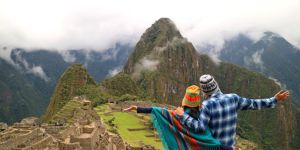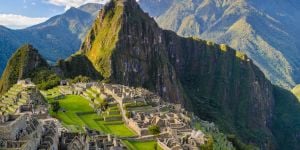Documentation Required for a Visa in Peru
Subscribe to the topic
Post new topic
Hey fellow members, I'm putting together my package for my move to Peru and I'd like your input.
I have...
Blood test results - HEP A and HEP B, also HIV
Blood test results - across the board, from white and red blood cells to cholesterol levels
Passport valid until 2027
Round trip ticket for six months
Police background check
Proof of retirement income (more than $1000 U.S. per month)
Yellow card
Birth certificate
Social insurance card
I want to buy land, build a house and establish a finca, where I will raise cuy, chickens and grow alfalfa, with the intention of selling the cuy to restaurants.
Do I have the documentation covered? What type of visa do I need to apply for with Migraciones Peru? I think it's the Rentista Visa, but I'm somewhat confused, as I don't clearly see which visa applies to me.
Thank you!!!
Passport Peru wrote:I will raise cuy, chickens and grow alfalfa, with the intention of selling the cuy to restaurants.
Do I have the documentation covered? What type of visa do I need to apply for with Migraciones Peru? I think it's the Rentista Visa, but I'm somewhat confused, as I don't clearly see which visa applies to me.
Dear Passport,
If you can prove non-governmental income of $1,000 US per month, a Rentista Visa may be the way to go.
However, retirement visa holders are not allowed to work and receive money!
So if you sell farm animals or alfalfa, you may be violating your visa terms .. and jeopardizing your right to hold the visa.
You will find this information -- and a list of what you need to bring to get the visa -- on a page you can Google which was updated in April 2021 at the limaeasy.com website.
In your place, I'd consult a visa specialist to confirm this information .. and see if there is a visa that would allow you to sell animals or their meat to restaurants.
If you post again, please tell us why you choose an obscure city in the Lambayeque region for your retirement relocation. You might also tell us what other visas you were potentially considering.
cccmedia
Thank you for asking, ccmedia... I spent ten years travelling in northwest South America, looking for my home. As you know, Chiclayo is the city of friendship, a well deserved reputation. I'm hoping to buy land in the triangle of Monsefu, Eten and Reque. I plan to give back to the communities and lead a quiet life of a granjero. The land is arable and within my budget (I hope).
As I understand it, the retirement visa doesn't allow me to have a business or engage in anything that makes money.
Scott Biggin wrote:As I understand it, the retirement visa doesn't allow me to have a business or engage in anything that makes money.
After just now reading up on some Peru-related websites about the Work Visa and the Business Visa, it seems evident that Peru does not want to admit new residents who plan to make money in Peru .. unless they have secured employment with an established Peruvian company.
The reason for this seems obvious -- the country wants Peruvians' disposable income to flow to Peru's native residents and its existing businesses.
This is probably even more salient now as The Situation has crushed Peru's economy and resulted in the world's highest-per-capita death toll from the virus.
Also, the newly-elected Leftist president (certified just last night) is a champion of the millions of left-behind Peruvians, so probably is not predisposed to anybody's agenda that might divert soles to Expat bolsillos.
Frankly, Scott, barring some unexpected work-around devised by a visa specialist or immigration attorney, I don't see how you will be able to move permanently to Peru and legally set up a granja as a money-making endeavor.
cccmedia
So it's probably time to consider Plan B or C.
Plan B... Move to Peru on a Rentista Visa .. and pursue farming without a profit motive. Rule 1 for arriving Expats in South America is .. don't buy land or a home before living in the target area for at least one year.
Plan C... Move to a country such as Ecuador that has not specifically set up its immigration laws to block Expat retirees from having a profitable farm or another type of business. I can refer you to an excellent immigration attorney based in my city who can guide you through the process of obtaining the right visa and getting started in your new life.
cccmedia in Quito, Ecuador
In my understanding, the retirement visa doesn't even allow you to rent out your house or flat when you're not living in it. This is bad if you plan to own your own home but not live in it all year round. Your home will stay empty when you're traveling and you will not be able to recoup part of your investment as you would if you could rent it out from time to time (through AirBnB for example).
Two other things I hate about the retirement visa:
1) You are required to transfer the full declared amount of your pension. Not good if you still have substantial expenses outside Peru and if you plan to live in Peru for only 6 to 8 months a year.
2) You lose your visa if you stay more than 6 months out of the country in a row or in a single year. Compare with Thailand where they don't give a f*ck how long you stay in single year.
jack_gats wrote:In my understanding, the retirement visa doesn't even allow you to rent out your house or flat when you're not living in it. This is bad if you plan to own your own home but not live in it all year round. Your home will stay empty when you're traveling and you will not be able to recoup part of your investment as you would if you could rent it out from time to time (through AirBnB for example).
Dear Jack,
If you're still living in Germany and/or are just now moving to Peru, you may not be a viable candidate for home purchase in Peru.
Expats moving to South America should not consider purchase of a home or property until they have lived in the target area for at least one year. I have more to say on this if you need convincing.
You're even less likely of a candidate for home purchase since you potentially plan to live in Peru for as little as six months of the year.
Practically anything you can buy in Peru you can rent instead for fewer hassles.
--
If you post again, please tell us the source where you learned that a property-owning visa holder in Peru (supposedly) cannot rent out his home via AirBnB during travel periods.
cccmedia
cccmedia wrote:jack_gats wrote:In my understanding, the retirement visa doesn't even allow you to rent out your house or flat when you're not living in it. This is bad if you plan to own your own home but not live in it all year round. Your home will stay empty when you're traveling and you will not be able to recoup part of your investment as you would if you could rent it out from time to time (through AirBnB for example).
Dear Jack,
If you're still living in Germany and/or are just now moving to Peru, you may not be a viable candidate for home purchase in Peru.
Expats moving to South America should not consider purchase of a home or property until they have lived in the target area for at least one year. I have more to say on this if you need convincing.
You're even less likely of a candidate for home purchase since you potentially plan to live in Peru for as little as six months of the year.
Practically anything you can buy in Peru you can rent instead for fewer hassles.
--
If you post again, please tell us the source where you learned that a property-owning visa holder in Peru (supposedly) cannot rent out his home via AirBnB during travel periods.
cccmedia
Not a property-owner, but rather a property-owner on a rentista visa.
Here: https://www.creimermanlaw.com/post/visa … ta-en-peru
"Este tipo de Visa, prohíbe cualquier acción que implique las actividades lucrativas o remuneradas."
I had the opportunity of buying a plot for a good price (from a Peruvian I've known for years who lives in Europe) in one of the condominiums 80 or so kms South of Lima. However, not sure I would find the long winter months attractive. Most importantly, this 6-months stay requirement is a deterrent for me. Up to now I've been a pensioner in Thailand and Thailand doesn't give a sh*t how long you stay in the country.
The income restriction of the rentista visa can be remedied by living two years (at least half time) in Peru and then applying for a Peruvian passport. This is a second passport and does not require surrendering your original passport.
Naturalized citizens may rent out their properties during travel. However, run this by your attorney before you get too far along.
A clean police record may be required.
cccmedia
cccmedia wrote:The income restriction of the rentista visa can be remedied by living two years (at least half time) in Peru and then applying for a Peruvian passport. This is a second passport and does not require surrendering your original passport.
Naturalized citizens may rent out their properties during travel. However, run this by your attorney before you get too far along.
A clean police record may be required.
cccmedia
Peruvian citizenship sounds great, however what about the tax exemption on your foreign pension then? I'm just mentioning this for the sake of other members here, I don't think I will go for Peru after all.
One other thing I didn't like in the rentista visa is that it seemed Migraciones checked that you transferred the FULL AMOUNT of your foreign pension to Peru. That was problematic if you had a substantial pension and you didn't want too much money to accumulate in Peru with respect to the months you would spend there, or if you still had obligations back home (mum and dad still alive and requiring financial assistance)
jack_gats wrote:One other thing I didn't like in the rentista visa is that it seemed Migraciones checked that you transferred the FULL AMOUNT of your foreign pension to Peru. That was problematic if you had a substantial pension and you didn't want too much money to accumulate in Peru with respect to the months you would spend there, or if you still had obligations back home...
It's a fact of life for many Expats -- in particular, globetrotters such as Jack -- that one has to wire funds internationally from time to time.
The solution in the Peru rentista scenario to prevent funds from over-accumulating in Peru .. is to wire or ACH-transfer funds from time to time from a theoretical Peru bank account to the home-country bank account. The requirement to transfer a foreign pension to Peru does not preclude the depositor from subsequently moving a portion of the income to back home.
cccmedia
Articles to help you in your expat project in Peru
 The Working Holiday Visa in Peru
The Working Holiday Visa in PeruUnquestionably a jewel in the crown of South America's must-see destinations, Peru offers an endless array of ...
 Visa requirements for Peru
Visa requirements for PeruBefore travelling to Peru, it is best to research travel formalities and conditions. For citizens of most ...
 Leisure activities in Peru
Leisure activities in PeruIf you're considering a move to Peru, why not make the most of this time by discovering the country and learning ...
 Accommodation in Lima
Accommodation in LimaRelocating to Lima is a popular choice amongst expatriates moving to Peru. As the Peruvian capital, Lima is home ...
 The healthcare system in Peru
The healthcare system in PeruWhether you are visiting Peru for a short time or planning to relocate for an extended period, it's important ...
 Setting up a business in Peru
Setting up a business in PeruPeru is a real haven for foreign investment, which greatly contributes to the economy. Many foreigners have ...
 Banking in Peru
Banking in PeruOpening a bank account in Peru may be very helpful for managing your money on a daily basis, especially if you ...
 Driving in Peru
Driving in PeruIf you are relocating to Peru as an expat, you may choose to rent or buy a car, giving you more flexibility and ...
Find more topics on the Peru forum



